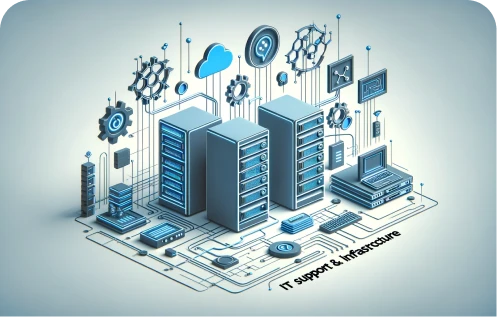The demand for data science has never been greater. It’s a field that has been integrated into both professional and non-professional fields, across industries and careers. Whether it is in an educational institute or a multi-national bank, data scientists are valuable assets to any company.
However, as most data scientists have studied a strictly technical degree and then went on further to take on technical jobs, the development of skills that propels them forward often gets stagnated. These are soft skills, which are not in the technical field but absolutely crucial to move them forward. Often, this is why a hiring manager will choose one data scientist over another. You cannot build a career on mathematics and programming – this will get your foot into the door but not take you up the career ladder.
We’ve listed five of the most crucial skills needed to propel your data science career forward:
Communication
Being an effective communicator is probably the most important soft skill for any data scientist. Business executives are looking for data scientists that are able to translate technical jargon into a simplistic language and explain it to a broader business.
A data scientist is a business enabler for organizations to achieve results. In order to achieve these results, the problem needs to be identified and understood. This requires active listening – and being able to ask the right questions. Thereafter, a data scientist needs to be able to communicate with fellow technical data scientists the basis of the problem and the way in which it will be tackled.
It’s also important to understand that the business you are enabling probably consists of people that are from a non-technical background. They don’t necessarily care about the systems you created or the back-end processes you took to create the model. But what they value is the impact it can have on businesses. So, when communicating, it is important that you always speak from a standpoint of adding value, which will lead to effective stakeholder management and deep relationships.
Finally, once you have reached a certain level of achievement in the organization, you will be seen as a subject matter expert. Someone that becomes the voice piece for a project or a team. You will be required to do interviews, and public speaking and send out communications via email. There can be no substitute for data science knowledge and skills, but being able to communicate well is almost equally as important.
Critical Thinking
A data scientist is by nature someone that looks to build solutions. But far too often, the solutions are misaligned and not what the business wants. That is why critical thinking is so important because it will enable you to properly solve a problem.
Critical thinking comes down to the ability to succinctly and accurately define a problem in about one or two sentences. In this, you will then be able to ask the appropriate questions, hypothesis, and be able to critically allocate resources to it. Furthermore, you will also be able to bring a different viewpoint to what the business may have not considered. It’s also important that you have the skill of being able to see the ‘big picture’. Data only tells half of the story – that it is why it is crucial that you’re able to take a step back, revisit the problem statement to understand and interpret the data in the correct framework. Critical thinking thus allows you to consider all possibilities, consider the context, and provide strategic insights.
Business Acumen
As a data scientist, it is crucial that you apply yourself to understand the business context. In fact, in your first 100 days in a new business unit, that should probably be your main priority. It’s one thing to understand data, but having a deep understanding of the business allows you to actually be valuable to an organization. If you’re in the financial industry, then it is important to stay on top of the finance world. If you’re working in a university, it is important you stay ahead of the developments in the education field. Therefore, to be a top data scientist, your development plan should include learning courses and conferences in data science topics, but also any educational courses in the field of whatever business you find yourself in. If you’re working in a bank, then it may be valuable to attend a conference based on the finance industry for example. You’re not required to become a fundi in banking, but rather be able to sit at a table across from an executive and speak the same language.
Curiosity
The field of data science is moving faster than most people are able to process. That is why it is important to have a sense of curiosity – i.e. a desire to always learn more and acquire new skills in the field. That’s why it is important to always be reading books, doing online courses, attending conferences, and keeping up to date with the latest development in the industry. This should also directly translate to the work you do and the new innovations you bring to it. Furthermore, it is also important to have a curiosity about the data sets you work with. Sometimes the data you work with does not always tell the immediate story – it is important to always go a step further and look deeper into the data. Ask critical questions and seek to find out more through understanding context.
Storytelling
Finally, the skill that sets data scientists apart from their rest is storytelling. Being able to use visual and verbal communication to tell a story that is based on the insights of data. For example, if you work for a bank and provide customer insights. Providing a table with data about the customers will be one way of doing things. But the best way would be to tell a story – provide the context of where the customer is from, their background and their story – and why the insights you have provided matters to the customer and thus to the organization. A compelling story has the ability to influence stakeholders, develop clarity, and result in a holistic improvement in a product.




















